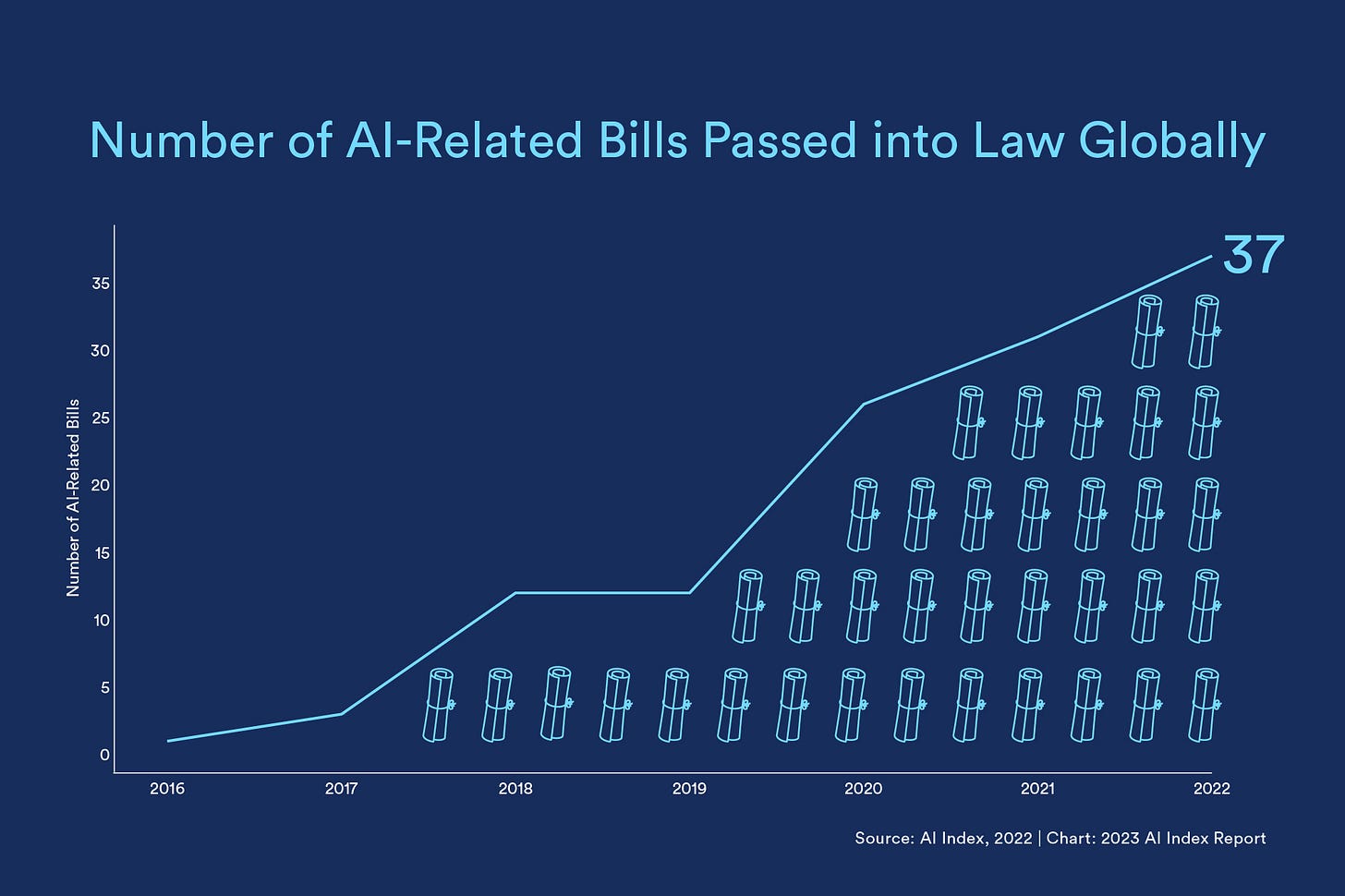On Fractal Complexity
Reactive legislation and macro views are rarely good solutions.
// I’m re-sharing some posts that I’m particularly proud of and think readers would enjoy. Here’s one I published very early on—all the way back in May 2023. This is a core theme I emphasize regularly on this blog: That systems are complicated, chaotic, and rarely have a single or simple solution. I refer to this as fractal complexity.
Years ago and early into my marriage, my husband, a Site Reliability Engineer, introduced me to the wonderful concept of 'fractal complexity'. I use the phrase constantly to describe why various things that might seem simple or elegant on the outside are really just a giant intricate swirls of chaos the further you dig in.
Fractal What Now?
Fractal complexity is an idea with origins in fractal geometry, the study of structures with patterns that repeat at infinitely small scales. To quote Wikipedia: "A fractal is a geometric shape containing detailed structure at arbitrarily small scales, usually having a fractal dimension strictly exceeding the topological dimension." You know, these things:


In mathematics, the study of fractal dimensions captures how a fractal's detailed shapes (its complexity) change with the scale of magnification the fractal is observed at. A fractal may start out simple and plain, only to become ever more complex as you zoom in. Benoit Mandelbrot, who coined the term in 1975, described fractals in 7 words: “beautiful, damn hard, increasingly useful. That's fractals."1
The concept of fractal complexity makes for elegant shorthand to describe any complex system. At a macro level, you've got what seems like a single, monolithic thing or a simple problem. As an example, let's say Google or Big Tech, or AI. But Google isn't just a single thing. It's composed of Search, Gmail, Home, Cloud, the various devices it creates, and of course Ads, and that's just the consumer-facing stuff.2 These systems are often characterized by a high degree of interconnectedness and interdependence, which is why big companies like Google, Amazon, Apple, and Microsoft all end up having ecosystems.

Google’s Fractal Complexity
The Google Search index for example, ties into dozens of products (Drive, Gmail, Ads, Home, its mobile devices/Chromebooks, etc.), and an incalculable number of internal and external systems, services, networks, and protocols. Even if you drill down to explore just one aspect of Search – say, how Google stores the a site's metadata (i.e., the data about the contents of a website, but not the content itself) – those interconnections & interdependencies just keep going.
Metadata isn't just stored on hard drives somewhere in a datacenter. Instead, that data is broken into chunks of smaller data, and those chunks are stored as data structures (known as a Protocol Buffer or protobuf) in a database (BigTable), which is further broken down and stored in a file system (Colossus). This process repeats itself a few more times, adding things like replication, and encryption, until eventually everything is small enough to stored on physical drives in multiple datacenters.3
And as I say, this is just one aspect of a single product. Multiply this times the 80+ or so products, and assume the same types of complexity for other “large online providers,” and you start to see why meaningfully solving the problems of ‘Big Tech’ isn’t nearly as easy as policymakers and pundits think it is.4
And therein lies the core of my frustration: Most people assume that the answer to this complexity is some combination of a) passing more laws; b) boosting enforcement of existing laws; c) breaking companies up via antitrust and competition controls; d) forcing more compliance & complicated hoop-jumping for everyone; or e) destroying capitalism.
But just like the fractals of math, the fractals of technology & large systems are, as Mandelbrot described, “beautiful, damn hard [and] increasingly useful.” Breaking a part will inevitably destroy some of that beauty and utility, assuming you can break them at all. And while destroying capitalism would probably shake things up quite a bit, I suspect we’d all be rather dismayed with the outcome. Especially when core things in our lives stop working.
Policymakers Ignore This Complexity
In my world, it feels like very few people grok systemic complexity. Lawyers, journalists & pundits are especially bad, as are most ‘experts’ and regulators are ever keen to pass new laws to slow down, pause, or ‘control’ any new thing that comes about. Take AI for example: lawmakers are tripping over themselves to pass new laws on AI, with governments in 127 countries passing over three dozen laws in the last year.
The same problem plagues many aspects of our interconnected world, including encryption-killing “chat control” laws, rules governing social media and “viewpoint fairness”, and the various flavors of “online harm” and age verification bills being floated or implemented, notionally to keep bad things off the internet (or at least away from kids).
I’m not saying the internet and tech should be a free-for-all because they’re fractally complex problems. But we do need people who can appreciate and reflect on the complexity and examine the elements more deeply, instead of blindly reacting crisis-by-crisis.
Most legislators are generalists and most regulators are only slightly more focused within their larger regulatory remit (e.g., competition, securities, data protection). That means laws are being written and guidance drafted from the 50,000 view, the outer edges of the fractal, without thinking about the complexities within. Without considering how systems interplay, how technical and other limiters exist, what tradeoffs will need to be taken, and whether the prescribed steps even meaningfully achieve stated goals.
One thing I would like to better solve is how to educate policymakers on these complexities. Maybe some of this will flow from my writing, but I’m always open to suggestions for more impactful means. Leave a comment if you’ve got thoughts on how to tackle complexity.
This clip is only around 2 minutes long, and I encourage you to watch it because it’s delightful.
There are other products of course for developers and businesses that Google lists, but I was too lazy to do a full count, and even if I did, it's woefully incomplete. For example, Bard isn't even listed.
I am not a software engineer, nor is my goal to get into overly technical digressions. For those who are curious about such things, I suggest reading Google's excellent book on Site Reliability Engineering, or at least checking out this section: https://sre.google/sre-book/production-environment/
Adding a bunch of pointless compliance bullshit (aka, laws that lead to symbolic representations of the thing), however, is extremely easy and quite attractive to most policymakers and the lay public.


Belive it or not, my ex-boyfriend was completely obsessed with Fractal reality. But I don't think he was as efficient as explaining it as you did here. I guess Google-level-complex problems require Google-level-complex solutions. Compliance will never be enough. I know I am more efficient helping Privacy, Autonomy and Human Rights studying Privacy Engineering than with more legal studies. That's the only way to go... About AI, this is the problem that alignment researchers face. Why the only real solution in the future is AI that keeps AI aligned with human values.
Thanks Carey, I'll go stare at the void of reality now XD.